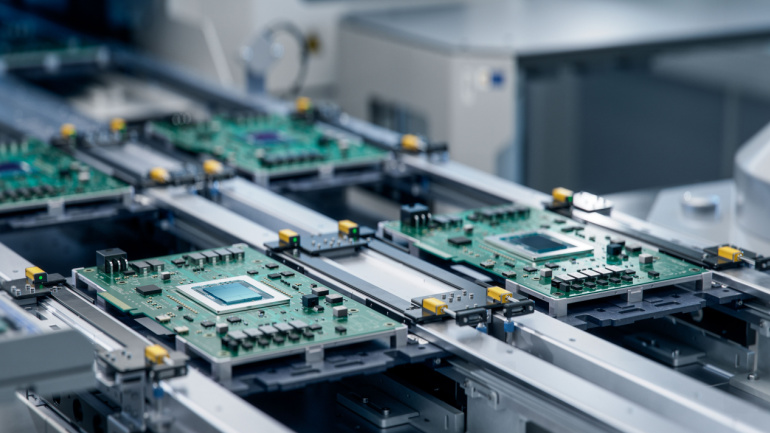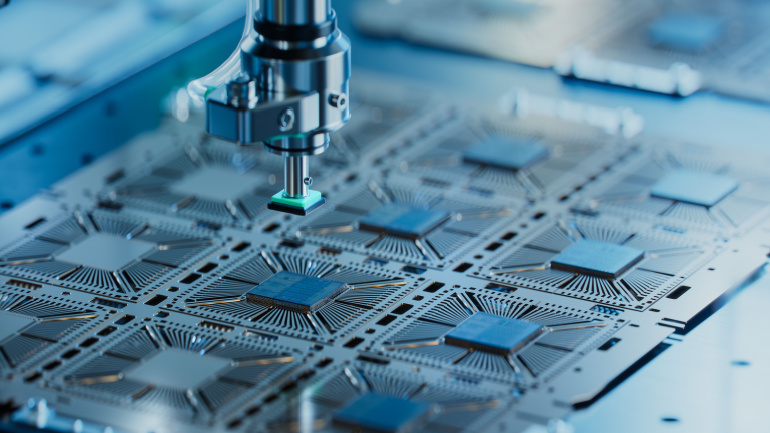IDC predicts a promising future for the semiconductor industry, driven by AI advancements and a stock level recovery. With a refreshed outlook signaling sustainable growth, the firm anticipates global chip revenue of $526.5 billion in 2023. Progress can be seen in the revised revenue forecast for 2024, hinting at a 20.2% year-on-year growth to $633 billion.
In a strategic move, Intel has decided to sell 10% of IMS Nanofabrication to Taiwan Semiconductor Manufacturing Company (TSMC), aiming to accelerate the development of cutting-edge lithography technology, vital to the production of state-of-the-art semiconductors. IMS, a leading producer of essential chip-manufacturing components, plays an essential role in the complex world of mobile devices and similar applications. The investment is expected to enhance IMS’ independence to address significant growth opportunities for multi-beam mask writing tools.
The US and India strengthen their strategic partnership, focusing on 6G research, Open RAN, and semiconductors, while collaborating on technology sharing, co-development, and co-production opportunities between industry, government, and academia.
ADI invests €630 million to expand its Limerick operations, tripling fabrication capacity and fostering innovation through the €100 million ADI Catalyst Centre. Meanwhile, energy efficiency becomes a priority for 5G Massive MIMO and future 6G development.
The European Commission allocates $9.2 billion for R&D initiatives in telecoms and semiconductor sectors, targeting innovative microelectronics, 5G and 6G technologies. To support digital sovereignty goals, private investment of $15.5 billion and 56 companies are involved.
Kyocera, a prominent player in the telecom sector, is making waves by divesting a part of its KDDI stake to strengthen financial dynamics. This strategic move is key for VoIP advancements, as Kyocera enhances its focus on core telecom offerings.
The ongoing Arm versus Qualcomm legal battle could reshape the smartphone market due to Qualcomm’s reliance on Arm’s architecture for Snapdragon processors. If Arm’s license cancellation proceeds, it threatens Qualcomm’s processor production, impacting Android devices’ performance.
The escalating US-Huawei tensions profoundly impact the global VOIP industry by highlighting the strategic importance of technological independence. Ongoing sanctions against Huawei emphasize a pivotal point: adaptability in sourcing components is crucial. As these US-China dynamics unfold, VOIP providers must anticipate shifts in technological power impacting future market strategies.
Qualcomm’s interest in acquiring Intel signifies a major shift in the semiconductor industry. Qualcomm CEO Cristiano Amon is reportedly leading the talks, aiming to capitalize on Intel’s recent restructuring. This potential acquisition could redefine the competitive landscape, although regulatory hurdles may pose significant challenges.
Intel has announced a significant delay in constructing new chip manufacturing facilities in Germany and Poland, following disappointing Q2 financial results. This delay could impact Europe’s ambitions to bolster semiconductor production and reduce dependence on Chinese manufacturing.










